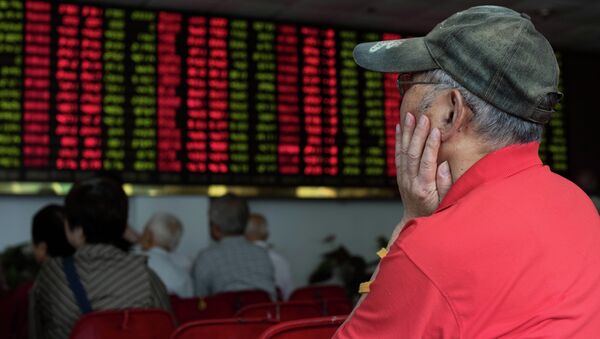Kristian Rouz — Vulnerability of emerging markets has been increasing dramatically recently, as a struggling mainland China's economy undermined global demand for commodities, most prominently, oil and metals, the main source of income for most developing nations. The tidal wave of a so-called ‘global currency war' only made things worse for the third world. While the heavyweights like the euro, the yen, or even the renminbi slightly dropped due to the respective central banks' policies aimed at improving the global competitiveness of their respective nations, the less sustainable emerging market currencies collapsed each time shortly after major currency market announcements.
Emerging market currencies are ravaged by the global fundamentals, with crude oil, the main export article for many developing nations, nearing $40/bbl in the US and hardly balancing at just above $46/bbl in London. Policy-makers in emerging markets, on the other hand, see a devaluation of their respective national currency as a good rather than an evil, propelling their international trade lucrativity sky-high at the expense of their populations gradually sliding into poverty. While a serious issue for occasional democracies — a serious of street rallies of protest have already shaken Brazil — a deterioration in domestic consumption is hardly a concern for most developing nations, boasting a stable authoritarian rule.
In Kazakhstan, the central bank liberalized the FX rate of its currency, the tenge, in an attempt to boost the nation's competitiveness and investment appeal. The currency slumped 25% against the dollar at once with commercial banks subsequently suspending trading in hard currencies. Kazakhstan's economy is overtly depending on oil revenues from trading with the struggling China and Russia. The recent decline in both the renminbi and the ruble have both attributed to the tenge's slump.
The devaluations in Vietnam, South Africa, Brazil and Turkey, while they vary in local circumstances, all stem from the renminbi's tumble. However, the ongoing appreciation of the dollar is also playing its part. On Wednesday, the US Fed indicated it is likely to move rates sometime later this year, spurring a greater demand for the US dollar. A Fed announcement of a September hike would have had quite the opposite effect, but that did not happen.
Adding anxiety to the renminbi situation, the International Monetary Fund postponed Beijing's bid for global reserve currency status by at least a year. The IMF cites procedural complications as the main reason, however, it is clearly understandable that a currency like the renminbi which is tightly controlled by a national government, if included in the IMF's Special Drawing Rights (SDR) pool, will have a deeply negative effect of the SDR liquidity. Not to mention the SDR users would face more uncertainty of the borrowing unit's value each time Beijing decides to tweak its currency due to domestic economic turmoil.
In mainland China, like in most of the autocratic nations of the developing world, the public consensus of the past decades was that a brutal political regime delivers a moderate economic prosperity, higher-paid jobs, better individual incomes and an abundance of consumer goods. Now, as the economy worsens, the dire political consequences will not be long, meaning the very survival of the current political elites in such nations is directly dependent of the efficiency of the governmental violence machine.
While the emerging markets situation is unraveling in accordance with a scenario very similar to that in 1997-98, the individual developing nations' economies are far less prepared for the new challenges like slower growth and cheaper commodities. Over the last ten to fifteen years global commodity producers have relied of the Chinese demand, being wholly dependent on economic developments in that nation, postponing or abandoning necessary reforms and lagging in technological development.
As the push comes to shove, it is time to pay for the prolonged bliss of being idle.



